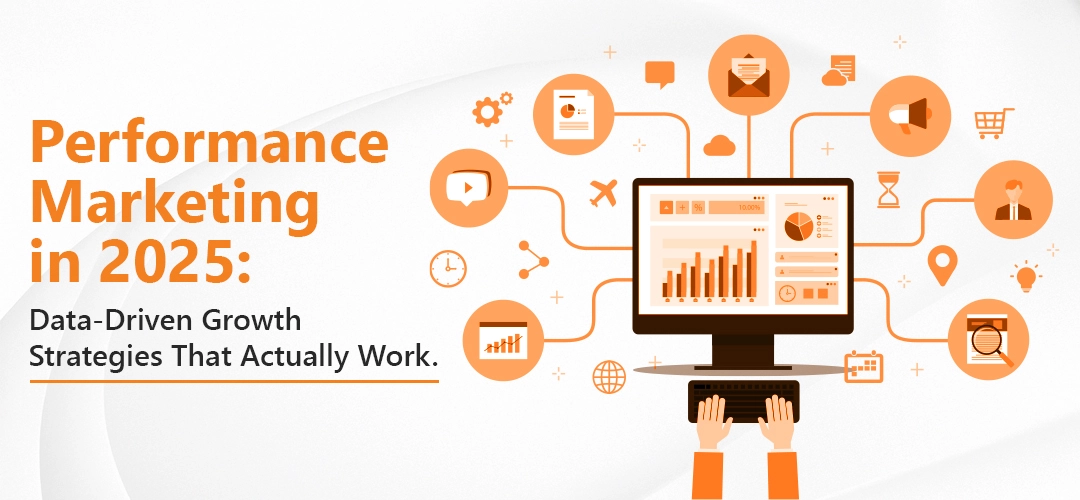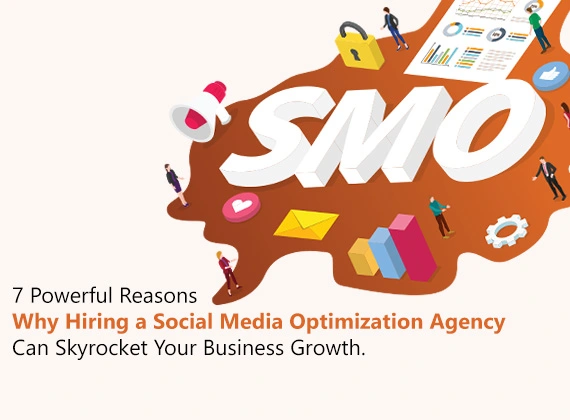Introduction
In today’s hyper-competitive digital economy, businesses don’t just want visibility — they want
measurable results. That’s where performance marketing comes in. Unlike traditional brand marketing, which focuses
on impressions and awareness, performance marketing is a results-driven approach where brands only
pay when a specific action is achieved — such as a click, lead, or sale.
As we step into 2025, performance marketing is evolving rapidly with the rise of AI,
personalization, automation, and data-first strategies. In this blog, we’ll explore
what
performance marketing is , why it matters, and the data-driven growth strategies that actually work in 2025.
What is Performance Marketing?
Simply put, performance marketing is a digital marketing strategy where advertisers pay only when their
desired outcome is achieved. This could include:
-
A click on an ad
-
A website visit
-
A lead form submission
-
An app install
-
A completed purchase
By focusing on measurable actions, performance marketing eliminates guesswork and ensures every marketing dollar delivers ROI.
Popular channels for performance marketing in 2025 include:
-
Paid Search Ads (PPC) Google Ads, Bing Ads
-
Social Media Advertising: Facebook, Instagram, LinkedIn, TikTok
-
Affiliate Marketing: Partner-driven promotions
-
Influencer Marketing with ROI tracking
Why Performance Marketing Matters in 2025
The digital landscape in 2025 is more competitive and more data-driven than ever. Brands are demanding
higher returns, better targeting, and full accountability for their ad spend. Several factors are fueling
the growth of performance marketing:
-
AI & Automation: Smarter algorithms optimize targeting, bids, and creatives.
-
First-Party Data: With cookie-based tracking declining, brands are turning
to CRM data, loyalty programs, and zero-party data.
-
Personalization: Consumers expect tailored offers and experiences.
-
Privacy Regulations: Compliance with GDPR, CCPA, and other laws makes transparent,
measurable marketing essential.
-
Cross-Channel Integration: Customers move seamlessly between search, social,
and mobile apps, requiring a holistic approach.
Data-Driven Growth
Strategies That Work in 2025
Here are the most effective performance marketing strategies brands can use in 2025:
-
Harness AI for Smarter Targeting
AI-powered platforms can analyze customer behavior in real-time, predict intent, and serve ads at
the right moment. This ensures your campaigns reach the right audience with minimal budget wastage.
-
Focus on First-Party Data
With third-party cookies fading out, first-party data is becoming the lifeline of performance
marketing. Collecting customer insights through sign-ups, loyalty programs, and interactive content
will give you a competitive advantage.
-
Build Omnichannel Campaigns
Consumers often interact with multiple touchpoints before conversion. Aligning search, social,
video, and display campaigns under one strategy ensures a seamless brand experience.
-
Prioritize Conversion Rate Optimization (CRO)
Driving traffic is only half the battle. Improving landing page speed, mobile responsiveness,
clear CTAs, and A/B testing can significantly improve ROI.
-
Personalization at Scale
Dynamic creatives and AI-driven personalization tools allow you to serve tailored messages
based on location, browsing history, or past purchases — boosting engagement.
-
Track the Right KPIs
Instead of focusing on vanity metrics, monitor KPIs that directly impact revenue:
-
Cost per acquisition (CPA)
-
Customer lifetime value (CLV)
-
Return on ad spend (ROAS)
-
Conversion rate
-
Churn reduction
-
Invest in Influencer & Affiliate Marketing with Performance Models
Influencers and affiliates are shifting to performance-based partnerships, where they earn
based on clicks or sales — making collaborations more accountable.
Future
Outlook for Performance Marketing
Looking ahead, the future of performance marketing in 2025 will be defined by:
-
AI-driven automation that makes campaigns more efficient.
-
Hyper-personalization that builds stronger customer connections.
-
Privacy-first marketing, ensuring compliance while maintaining ROI.
-
Deeper integration of SEO and paid campaigns, maximizing visibility across organic and paid channels.

